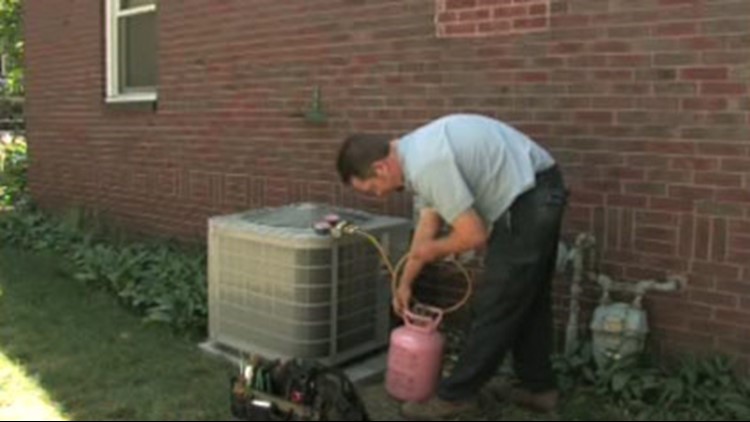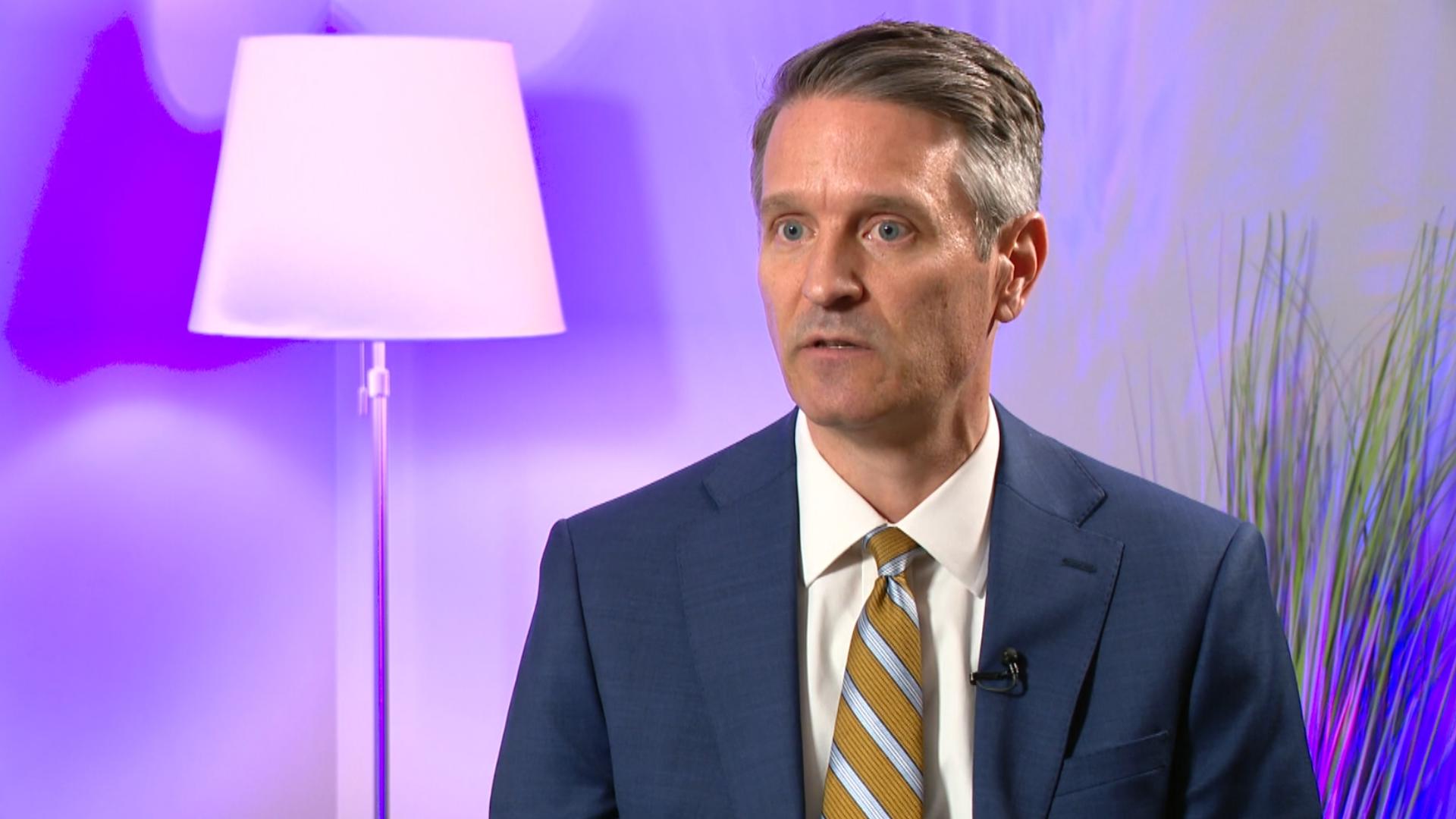With the extreme heat this summer, air conditioning units have been working overtime. But be warned, if you need to have coolant added to your air conditioner, it will cost you, and the price to fix that leak may cost you more than in past years.
As much as you may try to prevent it, you can't.
"There's really not a lot a homeowner can do to prevent a leak," said Larry Howald, Howald Heating and Cooling.
Cold winters and hot summers take a toll on your air conditioning unit over time.
"With an air conditioning system that sits outside in the wintertime, when it gets extremely cold, and then in the summertime, it gets warm and the unit operating with some vibration, maybe it gets hit by the lawnmower guy who's using a weed eater or whatever, all those things, just the expansion and contraction can create a leak and it's pretty tough for a homeowner to do anything about it," said Howald.
That's why you need to be prepared to pay. Federal regulations have turned what was a commonly available air conditioning system refrigerant into a scarce resource. Consumers have reported spending two and three times the amount on freon than in previous years.
"The older models use a freon that is not going to be available in a few years and because of that, production of that freon has reduced, causing the price to go up," said Angie Hicks, Angie's List.
The EPA wants freon gone by 2015, but most air conditioning units made before 2010 use the coolant.
So what are your options?
If you are faced with a leaking air conditioner, you might want to consider just getting a new system. Before you do, know all your options, because it will be expensive. Talk with a qualified heating and cooling company who has certified EPA technicians.
"What many people don't realize is that your heating and cooling expenses represent about 50 percent of your energy bills, so if your air conditioner is getting a little on the old side, maybe it's seven, eight, nine years old and you've got a repair, you want to make sure repairing it is the best move."
But if a new unit isn't in the budget, you still should give your current air conditioning unit a check-up. Over a couple of years, most units will lose a pound or two of the eight pounds of coolant typically needed. Be sure to have your system checked out at least once a year.
If you've heard of dry units that use the old coolant, but don't come charged with it, that's one way to avoid paying for a new system. But as freon is phased out, it will get more expensive in years to come.
More information from Angie's List
Federal regulations have turned what was a commonly available air conditioning system refrigerant into a scarce resource. And that may make a lot of homeowners sweat this summer.
Consumers have reported spending two and three times the amount for a common type of refrigerant than in previous years.
Angie's List, the nation's leading provider of consumer reviews, asked highly rated heating and cooling companies about these regulations.
- The reason for the cost increase can actually be traced back to action taken by the federal government 25 years ago.
- In 1987, the Environmental Protection Agency ordered the phasing out of certain ozone-depleting refrigerants as part of the Montreal Protocol. The act calls for 90 percent of R-22 coolant, commonly called "Freon," to be phased out by 2015 and to be virtually obsolete by 2020.
- Most air conditioners manufactured before 2010 use the coolant. The new EPA-approved coolant, known as R-410A, does not work with the R-22 equipment.
- Refrigerant leaks are a common problem with air conditioners. Over a couple of years, most units will lose a pound or two of the eight pounds of coolant typically needed to keep the machine pumping chilled air throughout your home.
- The rate increase is sure to pose issues for homeowners with older, leaky equipment. Many are faced with the prospect of continuing to invest in higher repair costs for older equipment, or taking the plunge and replacing the equipment with a newer, more efficient system that uses the new coolant.
- Having a conversation about your options with a licensed and qualified heating and cooling company can help homeowners determine if they should repair existing equipment or replace it. Any technician who handles refrigerant must be certified by the EPA to work with the coolant.
- Homeowner opting for repair should be prepared to also pay additional costs to cover service, labor and any other parts necessary.
- For homeowners who don't want to invest in an entirely new system but also don't want to keep investing in repairs, some manufacturers have circumvented the EPA guidelines, which called for an end to production of A/C units "charged", or filled, with R-22, by producing units that use the old coolant but don't come charged with it. These are often called "dry" units. Though these units generally cost less than a whole new system, consumers will still have to fill them with the old refrigerant, which is only likely to only get more expensive in the years to come.



